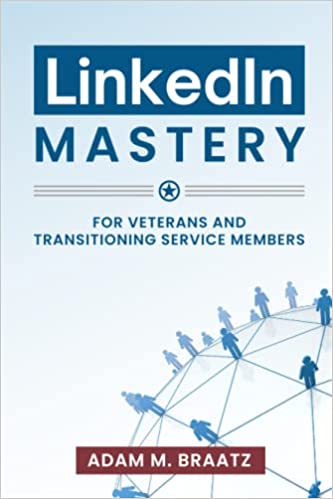Knowing the best times to apply for jobs can help you during your search and give you a better understanding of the job search landscape around you.
But is it really that important?
This guide will cover the best times to look for jobs, and what you can do if your search falls outside of these windows.
What is the Best Time to Look & Apply for Jobs Each Year?
Finding the right job opportunity and going through the hiring process to get an offer can take months. It's a big time investment, and it's not just you who's putting in the effort. Companies dedicate many resources to finding the right person.
While hiring managers can bring new people into the organization at any time during the year, hiring activity can be noticeably higher during certain months.
While there are no guarantees (and you shouldn't let this dictate your actions), here are some of the best times to apply for jobs.
January & February
Believe it or not, one of the best times of the year to apply for a job, regardless of industry, is at the start of the year. January and February are prime hiring times for a few reasons.
Budget Availability
First, it's often the start of the fiscal year for many companies. While fiscal years can begin during any quarter, the beginning of the year is usually when budgets are sorted and ready for use. Organizations understand their hiring budget and can start taking full advantage of it!
There's less hesitation about bringing in new employees because the budget is intact. If you were to try and get a job later in the year, the companies you interview for might have already consumed a substantial portion of the budget. Therefore, there will be fewer opportunities and more reluctance, especially if the hiring manager is getting close to depleting the available funds.
During the winter season, companies may need to hire people. But because there's uncertainty with the budget, they may implement hiring freezes. Come January and February, personnel requirements become more apparent as budgets free up, resulting in a push for increased hiring activity.
Many organizations have a backlog of jobs that are waiting to be fulfilled, making this one of the best times to look for a job.
Job Openings
There's also the factor of job openings. Providing bonuses in December is common, so many people wait until January to resign and look for another opportunity. That results in more positions opening up.
Everyone Is Back From Vacation
January and February are also good times to apply for jobs because most employees are back in the office. As you know, November and December are prime vacation months. Business operations slow down, and more people take time off work to travel or visit family for the holidays.
Everyone will start to return to the office during the first week of January as the new year picks up. By the second or third week, business is back in full swing! Fewer people are out, resulting in the reliable presence of key decision-makers.
It's the perfect time for hiring managers to bring people in because there's less back-and-forth with out-of-office staff. The ones making hiring choices are all there, resulting in fewer delays and faster decisions.
March, April, & May
While January and February are definitely the best times to apply for a job, many see success during the spring season. It's also when you have the most competition! Upcoming college grads usually start to search for employment after graduation during this time.
Depending on the job you are looking for and the industry, this time of the year may or may not work in your favor.
Here's why:
A New Batch Of Potential Employees
Some companies specifically wait until the spring season to start hiring for entry-level jobs. They know the candidate pool will be plentiful as soon-to-be graduates enter the workforce. As a result, they may hold off on hiring for certain jobs until that time.
Momentum From January & February
Another reason March, April, and May are good months to apply for jobs is that they piggyback on the momentum from January and February. Hiring processes take a long time. Depending on the job, it might take multiple rounds of interviews and several months. Therefore, hiring managers can't go through their list of job openings at once.
Companies on a substantial hiring spree may extend that cycle well into spring.
Summer Is Looming
You must also consider the pressure organizations feel as the spring season looms to a close. What's after spring? The summer! That's when employees often request vacation time.
Summer and holiday seasons are the most-requested periods for vacation. As summertime inches closer, hiring teams feel the pressure to fill all open positions. They know that many people will be out, and they might need to find new employees to fulfill those responsibilities.
While every company operates differently, it's common for hiring activity to remain high at the start of spring. It may dwindle down as those open positions fill, but you can still find plenty of opportunities.
September & October
September and October can be hit or miss, since it all depends on the industry and company. For some organizations, these months can be just as busy as January and February, leading to an influx of open positions.
Hiring picks up during the fall because it's often the last time companies can bring in new people. Hiring activity falls substantially during the summer as people go on vacation. Those who don't take a holiday are often busy with increased business operations, leaving little time to go through the hiring process.
But after hiring managers come back from vacation, a new wave of hiring may occur. All those open spots left unfilled from the beginning of the year must happen during September and October before holiday hiring slowdowns happen.
The good news is that things are often less chaotic during the months of September and October, so it's one of the best times to apply for jobs if you don't like the hassle! Interviews go smoothly, and there's often less downtime. That means less waiting to hear about the next step and shorter times between your last interview and getting a job offer.
Does This Mean You Shouldn't Look or Apply At Other Times?
While the periods mentioned above are the best times to apply for jobs, don't let that stop you from seeking opportunities during other parts of the year. There are no hard and fast rules about hiring processes. Companies seek candidates whenever a position opens, or they need new employees.
That can occur at any point during the year! People quit, organizations expand, and roles change. You never know what openings you'll find.
In other words, there's never a bad time to look for a job.
If you're looking to make a change in your career, don't let the time of the year stop you from exploring your options. Start your job search and see what's available. Apply to positions that interest you and use your network to learn about openings that might be coming up.
If you don't find something that works for your needs, don't fret! Keep the search alive and continue checking the main job search websites. Something will come up eventually, and you should always try to apply as fast as possible.
Getting a job offer can sometimes feel like a numbers game. The more you apply to positions, the better your chances of getting that elusive offer. But it's also about the quality or fit for jobs you apply to. Randomly applying to any job isn't a good idea.
You're more likely to see increased hiring activity during the aforementioned periods. Meanwhile, the summer and early winters tend to be sparse. But that doesn't mean you should pause your job search until those times of the year.
Look now and see what opportunities are on the horizon.
How to Improve Your Chances Year-Round
It doesn't matter whether you're searching during the best times to apply for a job, or when hiring activity slows down. Landing a job involves more than submitting an online application!
Here are some tips to help you maximize your chances of getting a job offer, no matter when you apply.
Make the Most of the Lulls
Don't get discouraged if you have trouble finding open positions that match your career aspirations. That's normal, and it's only a matter of time before things pick up and you begin to see more opportunities to make big career moves. So, what should you do in the meantime?
Lulls in your job search will occur, but you must not grow complacent. Use that downtime to improve yourself and what you have to offer employers.
The worst thing you can do is get discouraged and wait for things to "pick up." As mentioned earlier, job searches can take months. Some people get used to not going to work and end up treating it like a vacation. This isn't time off, and you should never treat it as such.
Always make use of any free time you have.
Consider refreshing your resume. Your resume is one of the most important documents you'll utilize during your job search. There are always ways to improve.
Fine-tune every detail and make it as appealing as possible. You'd be surprised by how much difference a well-written resume can make.
Be sure you update your LinkedIn profile as well. A robust LinkedIn profile is accessible to anyone 24/7.
You can also beef up skills in other ways that can be listed on your resume. For example, you can look into volunteering at events.
If you feel confident with your resume, try learning a new skill. Think about what skills are relevant to your industry and invest in improving your understanding of them. It doesn't matter how proficient you think you are. There's always room to grow.
Focus on core skills, and your improved competencies may lead to a better salary or position.
You can also work on soft skills like time management or communication. Take classes online and read books that help you become the best employee possible.
Try to make the most of your time. It can be disheartening not to find a job right away and feel tempted to wait for "better" times to apply. Keep yourself busy and put that extra time to good use!
Don't Hesitate If You See an Opportunity You Like
Even if it's not one of the best times to apply for a job, it's always a good idea to check on opportunities regularly. Make a habit of viewing job boards, LinkedIn posts, company hiring pages, and more.
Go one step further and set up alerts with your favorite listing sites. They can notify you of new jobs that meet the parameters you set. You'll be one of the first to know when something comes up.
When you see an opportunity you like, don't hesitate to pounce! Apply for those jobs as quickly as possible. Hiring managers may pay closer attention to the first few applications that come in. If they see what they like, you may find yourself getting phone interviews far sooner than you thought.
Act fast and jump on opportunities that seem like the right fit. It doesn't matter what time of the year it is. Applying quickly may increase your chances of getting through the hiring process.
Conclusion
Now you know the best times to apply for jobs. However, you should also know that there's no bad time to look for a new opportunity!
While understanding the cyclical nature of the hiring process can be helpful, never let that stop you from being proactive. There are plenty of jobs out there, all it takes is some commitment and patience to land one!



